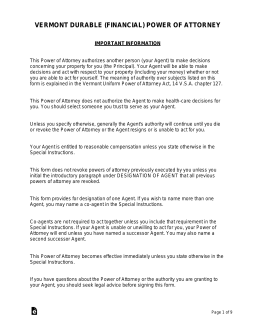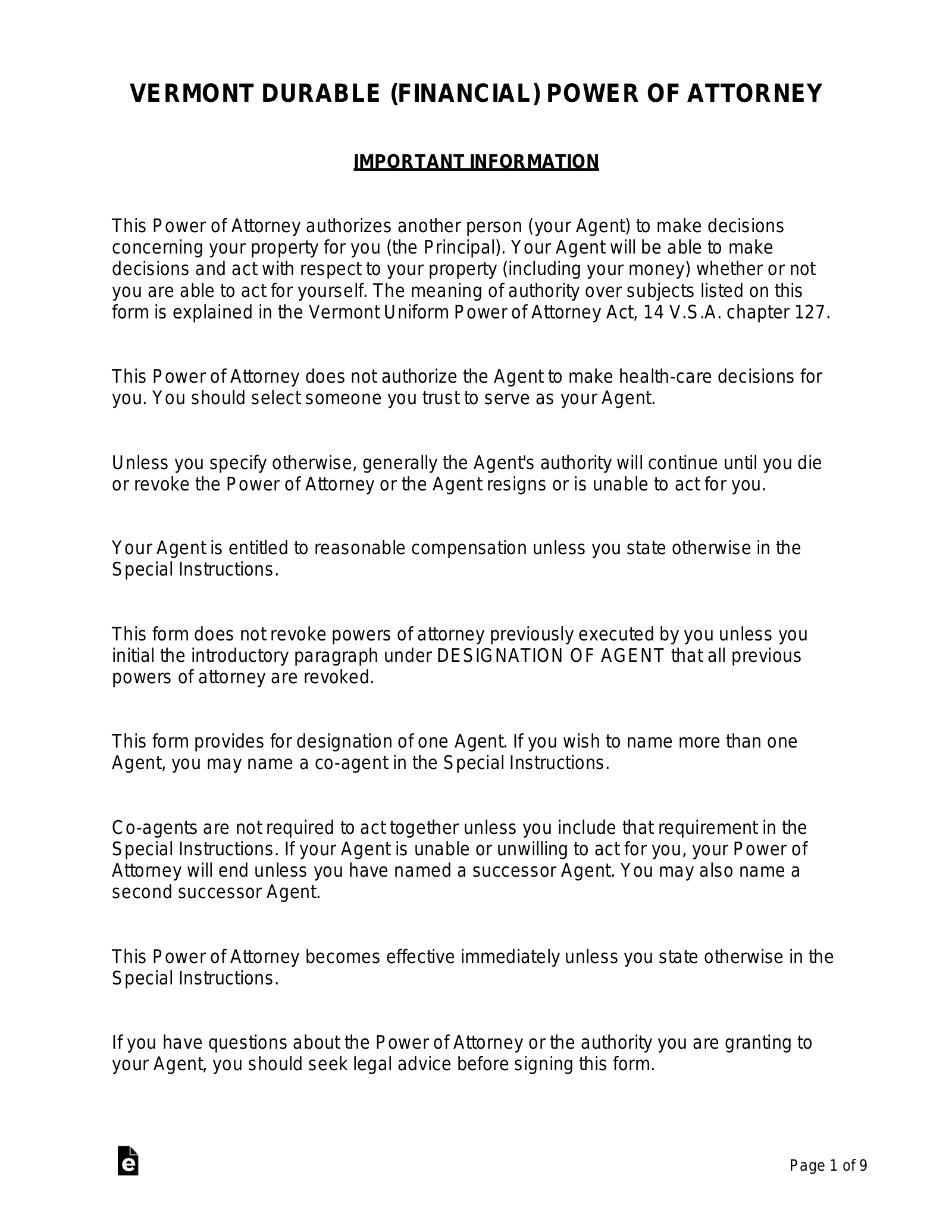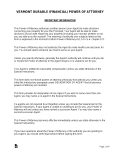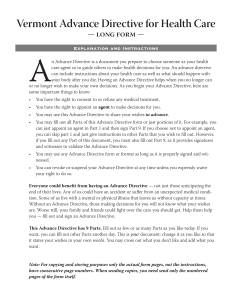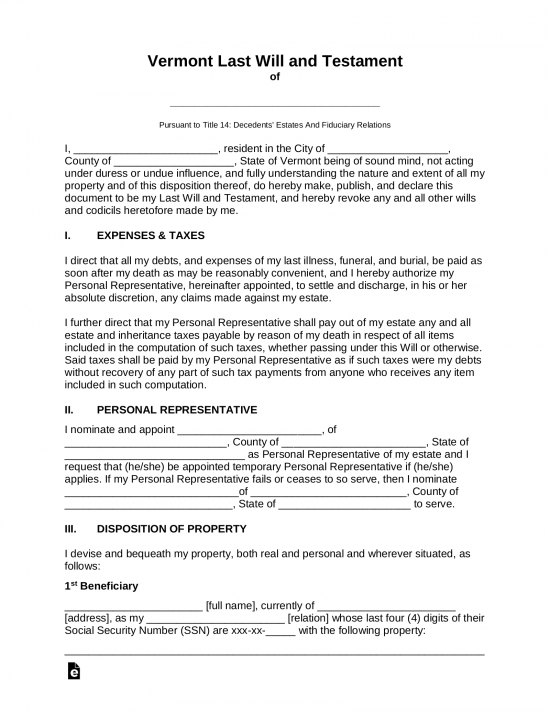Updated October 11, 2023
A Vermont durable power of attorney form is a legal document that allows a person (“principal”) to appoint someone else (“agent”) to stand in their place and handle their business affairs. This is only valid for financial-related decisions and may not be used for health care or guardianship representation. The term “durable” means the form lasts the lifetime of the principal unless terminated by the principal. After signing, the agent may begin acting and representing the principal in financial transactions.
Versions (1)
Download: PDF, MS Word, OpenDocument
Table of Contents |
Laws
Title 14, Chapter 127 – Vermont Uniform Power of Attorney Act
Definition of “Durable”
“Durable” with respect to a power of attorney, means not terminated by the principal’s incapacity or unavailability. (14 V.S.A. § 4002(2).)
Definition of Power of Attorney
“Power of attorney” means a writing or other record that grants authority to an agent to act in the place of the principal, whether or not the term power of attorney is used. (14 V.S.A. § 4002(9).)
Signing Requirements
The principal must have their signature acknowledged before a notary public. (14 V.S.A. § 4005.)
Statutory Form
The State of Vermont has a statutory power of attorney form available in 14 V.S.A. § 4051.
Related Forms
Download: PDF

